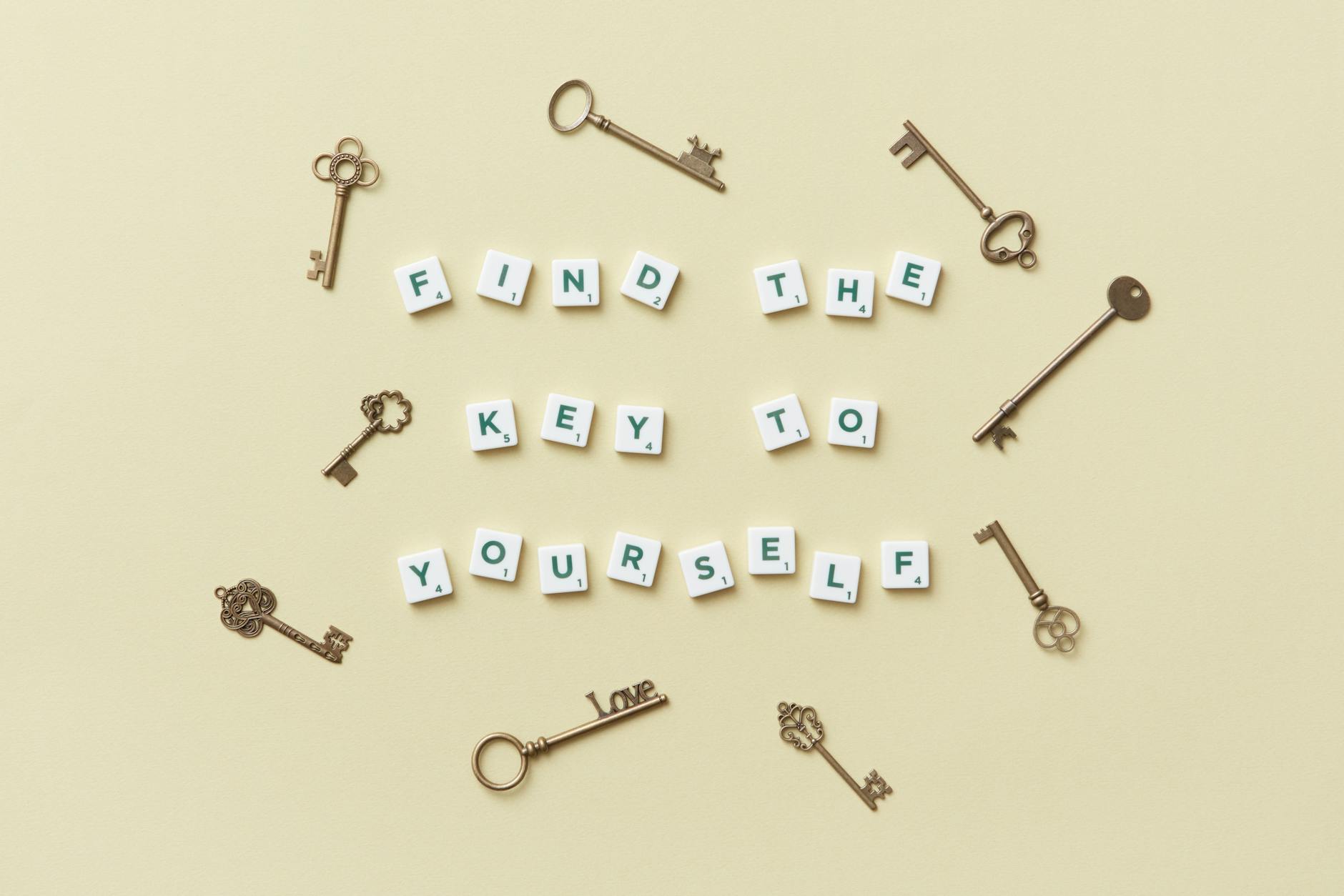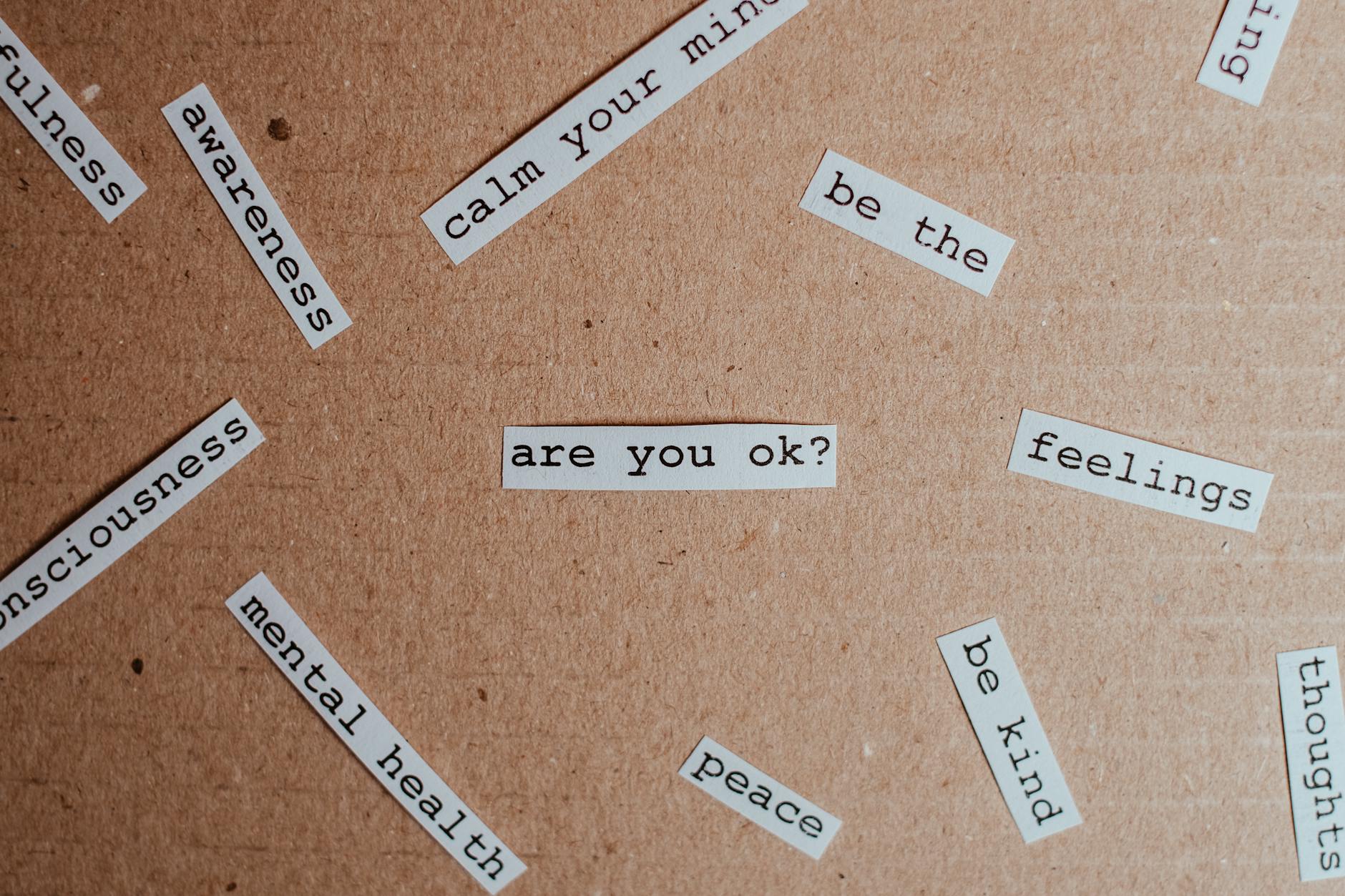Self-awareness is not just a buzzword; it's a fundamental aspect of personal growth and understanding. It goes beyond mere consciousness of your surroundings to delve into the deep realms of understanding your own personality and individuality. When you are self-aware, you can embark on a quest of self-discovery that can be truly transformative.
Understanding self-awareness means recognizing your actions, thoughts, emotions, and how they align with your internal standards. It's about unraveling the layers of your being to see yourself clearly and objectively through reflection and introspection. This isn't just about being thrilled by personal insights; it's about cultivating a sense of resilience and self-acceptance.
Gaining self-awareness isn't just a personal benefit; it can have a profound impact on various aspects of your life, including job satisfaction, relationships, personal control, and overall happiness. By developing self-awareness, you equip yourself with the tools to navigate life's challenges with a more seamless and authentic approach.
Understanding Self-Awareness
Self-awareness is a fundamental concept that involves having a clear understanding of oneself, including one's emotions, behaviors, thoughts, and values. It is the ability to introspect and recognize your own individuality, motives, and impact on others.
Definition of Self-Awareness
Self-awareness encompasses two primary types: internal self-awareness and external self-awareness. Internal self-awareness focuses on understanding your own values, passions, aspirations, and impact on others. External self-awareness involves recognizing how others perceive you and understanding your role in various social contexts.
Importance of Self-Awareness
Self-awareness plays a crucial role in personal growth, emotional intelligence, and relationships. By being self-aware, individuals can better manage their emotions, make informed decisions, and enhance their communication skills. It fosters authenticity, empathy, and accountability, leading to improved overall well-being and success.
Difference Between Self-Awareness and Consciousness
While self-awareness involves knowing oneself deeply, consciousness refers to being awake and aware of one's surroundings. Self-awareness goes beyond mere consciousness by delving into introspection, reflection, and understanding of one's own thoughts and behaviors. It involves a higher level of cognitive processing and reflection on one's identity and actions.

Photo by Marta Nogueira
Developing Self-Awareness
Understanding oneself is a crucial aspect of personal growth and development. Developing self-awareness involves recognizing and comprehending your emotions, thoughts, beliefs, and values. This awareness allows you to make informed decisions, build better relationships, and navigate life with clarity.
Internal Self-Awareness
Internal self-awareness pertains to understanding your own values, passions, aspirations, and impact on others. It involves introspection and reflection on your strengths, weaknesses, and motivations. By acknowledging your emotions and being in tune with your inner self, you can cultivate a deeper sense of authenticity and purpose in your actions.
External Self-Awareness
External self-awareness focuses on how you are perceived by others and how your actions affect them. It involves seeking feedback, being open to constructive criticism, and observing how your behavior influences those around you. By honing your external self-awareness, you can adapt your communication style, collaborate effectively, and enhance your interpersonal relationships.
Techniques to Enhance Self-Awareness
- Journaling: Keeping a journal allows you to track your thoughts, emotions, and experiences. Regularly writing down your reflections can provide valuable insights into your patterns of behavior and help you identify areas for personal growth.
- Mindfulness Practices: Engaging in mindfulness activities such as meditation or deep breathing exercises can help you become more present and attentive to your thoughts and feelings. Being mindful enables you to observe your internal reactions without judgment and fosters a deeper connection with yourself.
- Seeking Feedback: Actively seeking feedback from trusted friends, mentors, or colleagues can offer different perspectives on your behaviors and blind spots. Embracing constructive feedback as a tool for self-improvement can broaden your self-awareness and lead to positive changes.
- Self-Reflection Exercises: Dedicate time for self-reflection by asking yourself probing questions about your values, goals, and actions. Delve into your motivations, fears, and aspirations to gain deeper clarity about who you are and what drives you.
- Personality Assessments: Utilize personality assessments like the Myers-Briggs Type Indicator or the Enneagram to gain insights into your personality traits, preferences, and communication styles. Understanding your unique characteristics can enhance your self-awareness and guide your personal development journey.
Enhancing self-awareness is an ongoing process that requires commitment, introspection, and a willingness to grow. By cultivating both internal and external self-awareness through various techniques, you can gain a deeper understanding of yourself, improve your relationships, and navigate life's challenges with confidence and authenticity.

Photo by DS stories
Benefits of Self-Awareness
Self-awareness brings a multitude of benefits that positively impact various aspects of our lives. Let's delve into the advantages that self-awareness can offer in terms of personal growth and development, improved relationships, and increased emotional intelligence.
Personal Growth and Development
Self-awareness serves as the cornerstone for personal growth and development. By understanding our strengths, weaknesses, values, and beliefs, we can embark on a journey of self-improvement. This introspection allows us to set meaningful goals, identify areas for enhancement, and cultivate a sense of purpose in our lives. With self-awareness, individuals can navigate challenges with resilience and make informed decisions that align with their aspirations, fostering continuous growth.
Improved Relationships
Enhancing self-awareness contributes significantly to fostering healthier and more fulfilling relationships. When individuals possess a deep understanding of their emotions, triggers, and communication styles, they can engage authentically with others. This transparency promotes effective interpersonal connections, empathy, and conflict resolution skills. By recognizing and managing their own emotions, individuals can cultivate stronger empathy and understanding towards others, creating harmonious relationships built on trust and mutual respect.

Photo by Vie Studio
Increased Emotional Intelligence
Self-awareness is a key component of emotional intelligence, enabling individuals to navigate complex emotions effectively. By tuning into their feelings and understanding the motivations behind their actions, individuals can regulate their emotions and respond thoughtfully in various situations. With heightened emotional intelligence stemming from self-awareness, individuals can express themselves authentically, empathize with others, and manage conflicts constructively, leading to improved overall well-being and success in both personal and professional spheres.
Practical Tips for Cultivating Self-Awareness
Developing self-awareness is a journey of introspection and growth. Here are some practical tips to help you enhance your self-awareness:
Journaling and Self-Reflection
Journaling is a powerful tool for self-discovery. By jotting down your thoughts, feelings, and experiences, you can gain insights into your emotions and behaviors. Set aside time each day to reflect on your day, identify patterns, and explore your inner thoughts. Self-reflection allows you to understand yourself better, leading to increased self-awareness.
Seeking Feedback from Others
Feedback from others can provide valuable perspectives that you may not see yourself. Ask for feedback from friends, family, or colleagues to gain insights into how others perceive you. Be open to constructive criticism and use it as an opportunity for self-improvement. By understanding how you interact with others, you can deepen your self-awareness and work on personal growth.
Mindfulness and Meditation Practices
Mindfulness and meditation practices are effective ways to cultivate self-awareness. By being present in the moment and observing your thoughts without judgment, you can develop a deeper understanding of your inner workings. Regular mindfulness practices can help you become more aware of your thoughts, emotions, and triggers, allowing you to respond to situations with clarity and intention.
Therapeutic Approaches
Therapeutic approaches, such as counseling or therapy, can provide a structured space for self-exploration and self-awareness development. A trained therapist can help you uncover underlying beliefs, emotions, and patterns that may be affecting your self-perception. Through guided conversations and introspective exercises, therapy can support you in gaining valuable insights and fostering personal growth.
Self-awareness is a key component of personal development and emotional intelligence. By incorporating these practical tips into your routine, you can deepen your self-understanding and cultivate a strong sense of self-awareness. Embrace the journey of self-discovery and empower yourself to become the best version of you.

Photo by Andrew Neel
Challenges in Developing Self-Awareness
Self-awareness is a crucial aspect of personal growth and development, but it comes with its set of challenges that individuals often encounter on their journey to become more self-aware.
External Influences
External influences such as societal norms, family expectations, and cultural pressures can pose challenges to developing self-awareness. These external factors can shape our perceptions of ourselves and make it difficult to separate our true identity from the expectations imposed upon us.
Emotional Barriers
Emotional barriers, including fear, past traumas, and limiting beliefs, can hinder the process of self-awareness. It can be challenging to confront and address these emotions, leading to a reluctance to delve deeper into understanding oneself.

Photo by Celine
Lack of Reflection Time
In today's fast-paced world, individuals often struggle to find time for self-reflection. This lack of reflection time can impede the development of self-awareness as it requires moments of introspection and mindfulness to truly understand oneself.
Avoidance of Discomfort
Developing self-awareness can be uncomfortable as it may require addressing aspects of ourselves that we are not proud of or that challenge our current beliefs. Many individuals tend to avoid this discomfort, resulting in a stagnation of personal growth.
Overcoming Social Comparison
Constant comparison to others, especially in today's digital age of social media, can obstruct self-awareness. The habit of measuring oneself against unrealistic standards set by others can cloud one's own perception and hinder genuine self-discovery.
Navigating these challenges in developing self-awareness requires patience, commitment, and a willingness to delve into oneself despite the obstacles that may arise. By addressing external influences, emotional barriers, finding time for reflection, embracing discomfort, and letting go of social comparisons, individuals can embark on a journey towards a deeper understanding of self.
The Role of Self-Awareness in Personal Success
Self-awareness plays a crucial role in personal success by enhancing one's ability to understand themselves, their emotions, strengths, and weaknesses. This heightened self-understanding empowers individuals to make informed decisions, set meaningful goals, and navigate life's challenges with resilience and clarity.
Understanding Your Emotions
Self-awareness begins with recognizing and understanding your emotions. It involves being in tune with how you feel in various situations and understanding the impact these emotions can have on your thoughts and actions. By acknowledging and processing your emotions, you can respond more effectively to different circumstances.
Recognizing Strengths and Weaknesses
Another key aspect of self-awareness is recognizing your strengths and weaknesses. Understanding what you excel at allows you to leverage those strengths to your advantage, whether in personal relationships, work environments, or pursuing personal goals. Similarly, acknowledging your weaknesses enables you to work on areas that need improvement and seek growth opportunities.
Setting Authentic Goals
Self-awareness guides individuals in setting authentic and meaningful goals that align with their values and aspirations. By having a clear understanding of who you are and what you want to achieve, you can create goals that are purposeful and motivating. This clarity enhances focus and determination, driving you towards success.
Cultivating Self-Reflection
Practicing self-reflection is a powerful tool for enhancing self-awareness. Taking the time to reflect on your thoughts, actions, and experiences allows you to gain valuable insights into your behavior and decision-making process. Through self-reflection, you can identify patterns, learn from past mistakes, and make proactive changes for personal growth.
Improving Communication and Relationships
Self-aware individuals are better equipped to communicate effectively and build strong relationships with others. By understanding their own communication style, strengths, and areas for improvement, they can engage in meaningful interactions, resolve conflicts constructively, and foster positive connections with those around them.
Embracing Personal Growth
Embracing self-awareness is a continuous journey of personal growth and development. It involves a willingness to learn, adapt, and evolve based on self-discovery and feedback from experiences. By embracing this growth mindset, individuals can navigate life's uncertainties, embrace new opportunities, and strive for continuous improvement.
Photo by DS stories

Conclusion
Self-awareness is the key to personal growth and development. By understanding our thoughts, emotions, and behaviors, we can make positive changes in our lives. It allows us to recognize our strengths and weaknesses, paving the way for self-improvement. Cultivating self-awareness leads to better decision-making, improved relationships, and overall well-being.
Reflect and Learn
Taking time to reflect on our actions, reactions, and thoughts is crucial for self-awareness. Journaling, meditation, or seeking feedback from others can provide valuable insights into our behaviors and motivations. By learning from past experiences, we can gain a deeper understanding of ourselves and make informed choices in the future.
Embrace Vulnerability
Being vulnerable and open with ourselves is a key aspect of self-awareness. Acknowledging our fears, insecurities, and areas for improvement allows us to grow and evolve. Embracing vulnerability fosters authenticity and self-acceptance, leading to greater self-awareness and emotional intelligence.
Practice Mindfulness
Mindfulness practices help us stay present and aware of our thoughts and feelings. By focusing on the present moment without judgment, we can observe our inner workings more clearly. Mindfulness meditation, deep breathing exercises, or simply taking moments of pause during the day can enhance our self-awareness and emotional regulation.
Set Intentions for Growth
Setting clear intentions for personal growth and self-discovery is a proactive way to enhance self-awareness. By defining specific goals and values, we can align our actions with our true selves. Regularly reassessing our progress towards these intentions helps us stay committed to our journey of self-awareness and continuous improvement.








